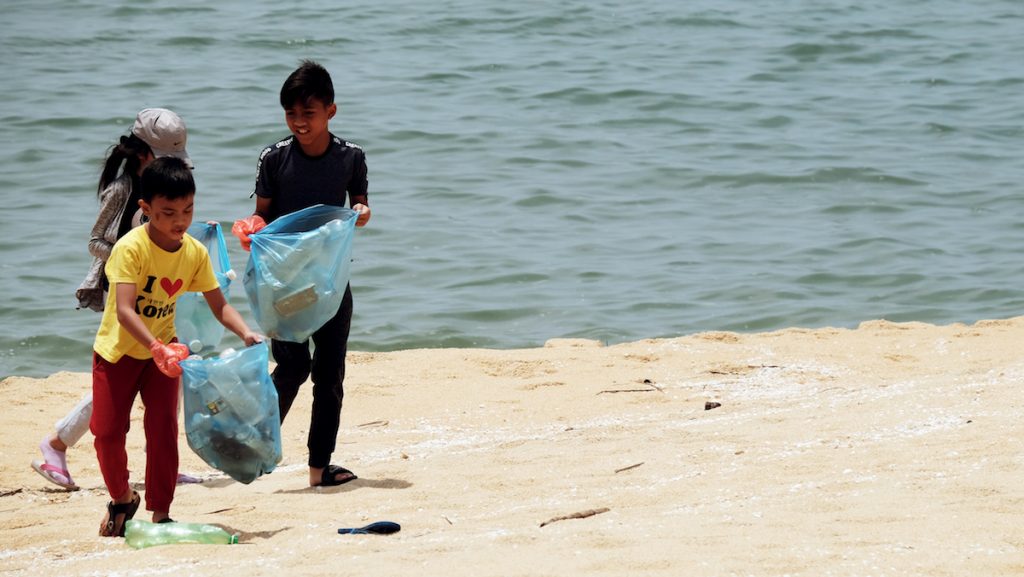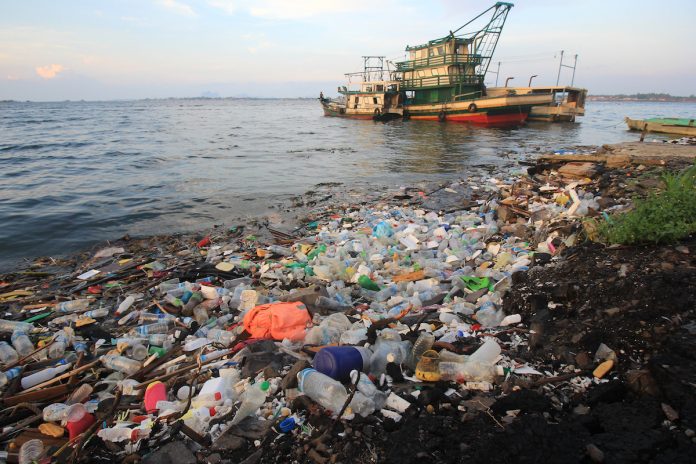Malaysia’s environment minister Yeo Bee Yin announced on Jan. 20 that her country has returned almost 4,000 tonnes of plastic rubbish to mostly Western countries in recent months.
“We do not want to be the garbage bin of the world,” the minister said, warning would-be sending countries to “dream on” if they expect Malaysia to recycle their rubbish for them.
The cost of repatriating the rubbish from Malaysia will be borne by sending countries and shippers, Yeo said, echoing her counterparts in the Philippines and Indonesia, countries that have also reacted furiously to the trade in foreign plastic rubbish and sought to make senders pay for shipping their garbage back to where it came from.
Since China banned the import of plastic waste for recycling in 2017, Southeast Asia has become a magnet for the largely-illegal trade, while images of fields of plastic rubbish bobbing on turquoise seas and of stinking plastic-engorged landfills have fueled concerns about a worldwide “plastics crisis,” with China, estimated to be the world’s biggest source of plastic pollution, becoming the latest country to ban single-use plastics on Jan. 19.
This stern “polluters-will-pay-a-price” message is the subject of a new study by the World Economic Forum and PwC, one of the world’s “Big Four” accounting firms. Not only are polluters likely to see their good names tarnished or face financial sanctions, businesses and governments are shooting themselves in the foot by damaging the environment upon which some commercial activity depends.
“This risk is not only reputational and legal — as more consumers and governments become aware of and act on nature loss. It is also operational and financial — as direct inputs disappear and ecosystem services, on which businesses depend, stop functioning,” the WEF/PwC study said.
“There are some unique assets we are losing that truly are irreplaceable,” said Dr. Enric Sala, a marine scientist with the National Geographic Society’s Campaign for Nature.
With more than half the world’s total economic output dependent to varying degrees on nature and therefore affected by damage to the environment, the hidden costs to countries and businesses are vast. Agriculture, construction, and food and drinks — sectors that combined are worth around twice the gross domestic product of Germany — are highly-exposed, the report said.

Two of Asia’s biggest economies are most exposed to the degradation of nature, with the WEF and PwC estimating that “around one-third of the GDP of India (33 percent) and Indonesia (32 percent) is generated in sectors that are highly dependent on nature.”
The slash-and-burn destruction of forests and peatland to make way for logging, paper mills, and oil palm plantations has seen Indonesia lose an estimated half its forested area since 1900. Although new restrictions on peatland have slowed forest loss in recent years, clearances still take place, generating fires that send a choking smog over Malaysia and Singapore, poisoning not only the air, but Indonesia’s relations with its neighbors.
Indonesia in turn suffers financially from the clearances, with the World Bank estimating that 2015’s deforestation-fueled fire crisis cost it US$16 billion in reduced economic activity, undermining the economic argument for palm oil.
Indonesia and Malaysia are by far the world’s biggest exporters of palm oil, but have been at loggerheads with the European Union, which is considering an import ban on the commodity on environmental grounds.
Businesses involved in sectors linked to pollution or damage to nature face “critical” risks, according to the WEF and PwC, which estimate that up to $941 billion of turnover in publicly listed companies is dependent on sectors such as beef, soy, palm oil, pulp, and paper that are “most connected with forest loss.”
Forest loss is likely undermining the likelihood of scientists coming up with new medicines, in turn damaging financial prospects for the pharmaceutical sector, which “is particularly dependent on biodiverse tropical rainforests for new discoveries.”
According to the WEF and PwC, “25 percent of drugs used in modern medicine [are] derived from rainforest plants.”
Only 15 percent of the world’s estimated 300,000 plant species have been assessed for their pharmacological potential — a percentage that is unlikely to go up by much if the world’s forest cover continues to be reduced.
Laudato Si’
Pope Francis has commented frequently on the environment, criticizing what he has deemed “short-sighted” policies.
The pope has further considered adding the category of ecological sin to the Catholic Church’s official teachings.
In his 2015 encyclical Laudato Si’, On Care For Our Common Home, the pope wrote that “many efforts to seek concrete solutions to the environmental crisis have proved ineffective, not only because of powerful opposition, but also because of a more general lack of interest.”
In Laudato Si, Pope Francis also discussed the impact of forest loss on science and medicine — and on businesses that depend on nature for their bottom lines.
“The loss of forests and woodlands entails the loss of species which may constitute extremely important resources in the future, not only for food but also for curing disease and other uses,” he wrote.









